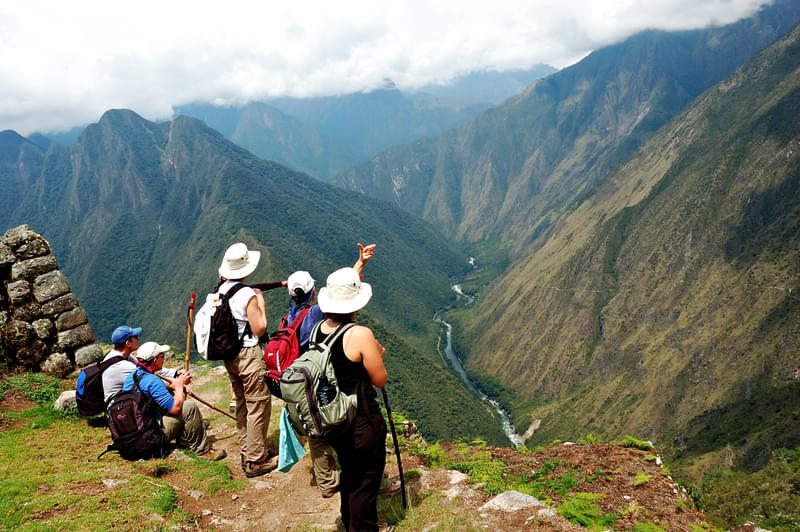Planning an adventure abroad is exciting, but the choices can quickly feel overwhelming. If you’re a UK traveller thinking about exploring Asia — whether that’s trekking in the Himalayas, joining India tours, or discovering the best places to visit in Sri Lanka — choosing the right tour operator UK is one of the most important steps you’ll take.
A good operator ensures you’re supported, safe, and inspired throughout your journey. A poor choice can leave you stressed, disappointed, and out of pocket. That’s where this simple checklist comes in.
I’ve worked in small-group adventure travel for over 15 years, and I’ve seen how the right guidance can transform a trip from ordinary to extraordinary. Here’s how you can confidently select the best partner for your next adventure.
Why Small-Group Tours Are Gaining Popularity
More and more UK travellers are moving away from mass tourism. Instead, they’re choosing small-group experiences that provide:
Personal attention: Smaller groups mean guides can focus on your needs.
Cultural immersion: Fewer people allow for deeper connections with locals.
Sustainability: Small groups are easier on the environment and local communities.
Flexibility: Itineraries can be more adaptable when the group is small.
If you’re planning a holiday to Nepal, a holiday to Bhutan, or touring India holidays trip in India, small-group tours give you the best of both worlds — structure and freedom. But to get those benefits, you need to choose your operator carefully.
Checklist for Choosing the Right Small-Group Tour Operator UK
Here’s what to look for when evaluating operators:
1. Reputation & Expertise
Experience matters. An operator that’s been running small-group treks and tours for years will understand the challenges and rewards of destinations like Nepal, India, Bhutan, and Sri Lanka.
Ask yourself:
Do they have a history of successful trips in the regions you want to visit?
Do they specialise in adventure and cultural travel, or are they more general?
The right operator combines professional knowledge with personal passion.
2. Group Size & Style
Not all “small groups” are equal. For some companies, that means 15–20 people. For others, it’s 6–10.
The difference is huge:
Smaller groups (6–12 people) allow for closer bonds with guides and fellow travellers.
Larger groups (15+) often feel less personal and harder to manage.
When comparing operators, check the average group size. If you’re planning something immersive — like trekking in Nepal or exploring the cultural highlights of Sri Lanka — a smaller group usually means a richer experience.
3. Destination Knowledge
An excellent operator doesn’t just sell trips — they live and breathe their destinations.
Look for deep knowledge in:
India tours that go beyond famous monuments into villages, Himalayan foothills, and cultural heartlands.
Holiday to Nepal itineraries that include trekking routes, acclimatisation advice, and cultural stops.
Holiday to Bhutan experiences that balance trekking with visits to dzongs, monasteries, and festivals.
Places to visit in Sri Lanka that combine natural beauty (tea trails, wildlife parks) with history (ancient cities, temples).
The more an operator understands these details, the more confident you’ll feel in their care.
4. Itinerary & Flexibility
Read the itineraries closely. A strong small-group operator should offer:
A balance between structured adventure (treks, guided tours) and free time.
Realistic pacing. If every day looks packed from sunrise to sunset, you won’t have time to absorb the experience.
Flexibility. For example, if weather changes a trek route, the operator should be prepared with alternatives.
If you’re planning a longer Asia tour, make sure the itineraries are linked logically so you’re not wasting time in unnecessary transfers.
5. Safety & Support
Safety should never be compromised. Look for clear information on:
Qualified local guides with first-aid training.
Emergency protocols, especially for treks in high-altitude areas like Nepal or Bhutan.
Access to medical support or evacuation plans if required.
Adventure should be exciting — not reckless.
6. Sustainability & Community Impact
Responsible tourism isn’t just a buzzword. It’s a sign of an operator’s values.
The right operator will:
Employ local guides and staff fairly.
Support community-based projects in destinations.
Promote eco-friendly practices, like avoiding single-use plastics and respecting cultural traditions.
If your goal is to explore responsibly, this is one area you don’t want to skip.
7. Transparency in Costs
Hidden costs can ruin your trip. Always check:
What’s included (accommodation, meals, transport, permits).
What’s excluded (flights, insurance, personal gear).
Whether tipping guidelines are clear.
An honest operator will give you all the details upfront so you can budget without surprises.
Red Flags to Avoid
As important as the checklist above is, it’s equally useful to know the warning signs:
Vague or overly generic itineraries.
No clear experience in the destinations they advertise.
Overly large groups being sold as “small group tours.”
Costs that seem too good to be true (they usually are).
Making Your Final Choice
At the end of the day, the right choice depends on what matters most to you:
Do you value cultural depth?
Do you want a physically challenging trek?
Do you prefer comfort, or are you happy to rough it for authentic experiences?
By using this checklist, you’ll be able to confidently choose a tour operator UK that matches your needs and gives you peace of mind.
Conclusion
Choosing the right small-group tour operator is the foundation of a successful adventure. With the right support, your journey becomes more than just travel — it becomes a story worth remembering.
Destinations like Nepal, India, Bhutan, and Sri Lanka are best experienced in small groups with expert guidance. Whether it’s a holiday to Nepal, holiday to Bhutan, touring India holidays trip in India, or exploring the many places to visit in Sri Lanka, the right operator ensures your adventure is safe, sustainable, and unforgettable.
So before you book your next Asia tour, take the time to walk through this checklist. A little preparation now can make all the difference in the memories you bring home later.

